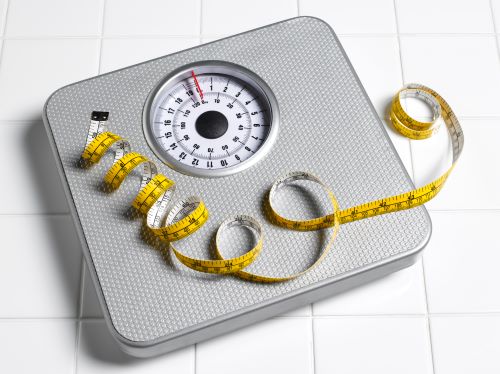Weight Loss for Transplant (Part 2)

What happens when lifestyle changes like diet and exercise do not lead to significant weight loss? This approach was discussed in our previous “Weight Loss for Transplant” article. It can take a long time to make permanent habit changes that lead to losing weight and, more importantly, keeping weight off. Below we will discuss possible different options for weight loss.
This can be the case for many reasons:
- Weight gain that leads to obesity usually happens gradually, over months to years. Similarly, losing weight permanently may take months or even years.
- Hunger hormones play a significant role in appetite. As the amount of food eaten is reduced, hormones adjust and lead to less hunger. With exercise, body composition changes, adding more muscle and stimulating metabolism. All of these changes take time.
- Research shows that conservative weight-loss approaches may not result in significant weight loss in patients with advanced chronic kidney disease. (1)
If weight loss goals for transplant are not met through diet and exercise alone, there are surgical and medication options available. Always remember that surgery and medications have major risks. It is important to carefully consider the risks and benefits of surgery, and to look for guidance from your healthcare team.
Surgery
There are generally two types of surgery: gastric bypass and gastric sleeve. Both types of surgery reduce volume of food that the stomach can hold, leading to rapid weight loss. In gastric bypass, surgery, segments of the stomach and small intestine are removed, leading to malabsorption of food and some nutrients. The gastric sleeve is often recommended in CKD patients because it does not alter the absorption of nutrients and is a better option for people who take medications in pill form.
The risks of surgery include:
- Bleeding, infection, and risks associated with anesthesia.
Additional risks associated with losing weight too quickly:
- Malnutrition, dehydration, muscle loss, decreased immune response- all could lead to complications of potential transplant surgery.
Benefits of surgical weight loss include:
- Improved general health and a lower risk for heart disease, Type 2 Diabetes, and cancer.
- Increased access to transplant.
Weight loss Medications
Injectable weight loss medications called glucagon-like peptide 1 receptor agonists (GLP1-RAs) are a newer approach to weight loss. Generic and brand names of these medications include semaglutide, tirzepatide, liraglutide, Ozempic®, Wegovy®, and Mounjaro®
The research involving these medications and their use in kidney transplant patients is new and developing. One program through the University of Chicago Transplant Center has a team of doctors, dietitians and therapists that help patients pair lifestyle modifications with the GLP-1 RA medications. 2
Other research has looked at the use of these weight loss medications in transplant patients. Initial findings indicate that these medicines are safe and do not lead to changes in the blood levels of drugs used to prevent rejection of the new kidney. 3
While more research is needed regarding GLP-1 RA use and kidney transplant, these early findings are encouraging. If you and your healthcare team determine that injectable weight loss medications are the right approach for you, be sure that your kidney doctor is aware that you are taking them.
References
- https://newsnetwork.mayoclinic.org/discussion/weight-loss-surgery-before-kidney-transplantation-improves-health-and-eligibility-of-patients-with-obesity-and-renal-failure-mayo-clinic-study-finds/#:~:text=ROCHESTER%2C%20Minn.,new%20research%20from%20Mayo%20Clinic.
- https://www.uchicagomedicine.org/conditions-services/transplant/transplant-weight-loss-clinic
- https://www.ncbi.nlm.nih.gov/pmc/articles/PMC10896177/
Additional Kidney Diet Resources
Visit DaVita.com and explore these diet and nutrition resources:
DaVita Kidney-Friendly Recipes
This article is for informational purposes only and is not a substitute for medical advice or treatment. Consult your physician and dietitian regarding your specific diagnosis, treatment, diet and health questions.

Recent Comments